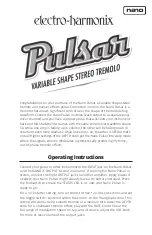
5-42 Image Optimization
Image quality in B mode (2D image quality)
Before entering 3D/4D capture, optimize the B mode image to assure:
High contrast between the desired region and the AF surrounded.
Clear boundary of the desired region.
Low noise of the AF area.
Scanning technique (only for Smart3D)
Stability: body, arm and wrist must move smoothly, otherwise the restructured 3D
image distorts.
Slowness: move or rotate the probe slowly. The speed of linear scan is about 2
cm/s and the rotation rate of the fan scan is about 10°/s
~
15°/s.
Evenness: move or rotate the probe at a steady speed or rate.
NOTE:
1. A region with qualified image in B mode may not be optimal for 3D/4D
imaging.
E.g. adequate AF isolation for one sectional plane doesn’t mean the whole
desired region is isolated by AF.
2. More practices are needed for a high success rate of qualified 3D/4D
imaging.
3. Even with good fetal condition, to acquire an approving 3D/4D image may
need more than one scanning.
5.11.2 Overview
Ultrasound data based on three-dimensional imaging methods can be used to image any
structure where a view can’t be achieved by standard 2D-mode to improve understanding
of complex structures.
4D provides continuous, high volume acquisition of 3D images. 4D adds the dimension of
“movement” to a 3D image by providing continuous, real-time displays.
Mode definition
Smart 3D
The operator manually moves the probe to change its position/angle when
performing the scanning. After the scanning, the system carries out image
rendering automatically, and then displays a frame of 3D image.
Static 3D
Posit the probe at a fixed place; the probe automatically performs the scanning.
After the scanning is completed, the system carries out image rendering, and
then displays a frame of 3D image.
4D
The probe performs the scanning automatically. During the scanning, the system renders
3D images in real time, and all 3D images are displayed in real time.
Terms
Volume: a three-dimensional content.
Volume data: the image data set of a 3D object rendered from 2D image
sequence.
3D image: the image displayed to represent the volume data.
View point: a position for viewing volume data/3D image.
Section image: tangent planes of the 3D image obtained by algorithm. As shown
in the figure below, XY-paralleled plane is C-section, XZ-paralleled plane is
Summary of Contents for M5 Exp
Page 2: ......
Page 12: ......
Page 41: ...System Overview 2 11 UMT 200 UMT 300...
Page 246: ...12 2 Probes and Biopsy V10 4B s CW5s 4CD4s P12 4s 7L4s L12 4s P7 3s L14 6Ns P4 2s CW2s...
Page 286: ......
Page 288: ......
Page 336: ......
Page 338: ......
Page 357: ...P N 046 008768 00 V1 0...
















































